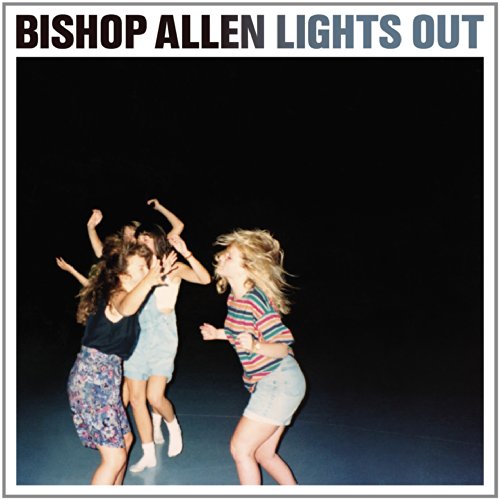
Bishop Allen
Lights Out
Release Date: Aug 19, 2014
Genre(s): Pop/Rock, Alternative/Indie Rock, Indie Rock
Record label: Dead Oceans Records
Music Critic Score
How the Music Critic Score works
Buy Lights Out from Amazon
Album Review: Lights Out by Bishop Allen
Fairly Good, Based on 8 Critics
Based on rating 7.0/10
Bishop Allen has always been good at grabbing one’s attention. When the Brooklyn outfit came on the scene in 2003 with its debut, Charm School, (and later with the 12-EP project in 2006), it seemed to have already mastered the art of lo-fi indie pop. Now, after several releases and a move to Kingston, N.Y., the band returns with its fourth proper full-length, Lights Out, which finds it doing what it does best: crafting tightly knit indie pop that clings to you without loosening its grip.
Based on rating 7/10
Following 2009's Grrr. . .
Based on rating 6/10
Bishop Allen might have boosted their career with a stunt—releasing an EP a month for a year in 2006—but by the time they pulled together their second full-length and Dead Oceans debut Bishop Allen & the Broken String they’d become a convincing indie-pop act. Founders Justin Rice and Christian Rudder were writing smart, catchy songs (so, fulfilling genre duties) with noteworthy aplomb and careful arranging. If Grrr… was a step down, it did like infectious capability, but it might have sacrificed a little personality in its twee.
Based on rating 6/10
For post-millennial indie's resident Harvard-educated polymaths, Justin Rice and Christian Rudder—the driving duo behind Bishop Allen—this persistently-upbeat pop project is just one of their many pursuits. Since launching the band a decade ago, they've done things like act in multiple movies and a web series (Justin), co-direct a documentary on Bob Dylan (Justin, again), co-found a dating site (Christian), and score The Weinstein Company's Bully (both, together.) Among all that, they somehow found time to record four LPs and 12 EPs. Bishop Allen hasn't put out an album since 2009's Grrr..., but it's a damn sure bet that time wasn't spent sitting on their hands.
Based on rating C
You may have been following the elitist fight currently underway between William Deresiewicz, an Ivy League-educated writer, and a handful of journalists from Newsweek and The New York Times. The topic at the center of their tussle? The Ivy League — whether or not it’s a beneficial (or even valid) gold standard to which youth should aspire. Deresiewicz claims that the eight private colleges foster a culture of line-toeing, systematically stamping out any curiosity or spirit of adventure and instead gifting Wall Street a few thousand brilliant, hollow minds every year.
Opinion: Excellent
The young women on the cover of Bishop Allen’s new album have the right idea. The photo captures them in motion, arms flailing as if they’re about to jump for joy. I like to imagine they’re on a trampoline, trying to get as high as they can. That’s the overwhelming sensation of “Lights Out,” a power-pop record that’s unfussy in its pursuit of jingle-jangle melodies and circular choruses that linger long after they’re over.
Opinion: Average
Bishop Allen seems like they’d be a lot of fun to see live. The duo would be performing in a park somewhere, it would be summertime and the sun would be shining bright when their set started, fading into sunset as they approached their encore. Good looking people would be in their summer clothes, dancing without a care in the world, smiling ear to ear and putting back a few cold ones to keep refreshed on a hot day.
Opinion: Mediocre
Trying to pinpoint the moment at which the term “indie” ceased being associated with a particular musical mindset and rather became synonymous with an especially restrictive brand of, predominantly white, guitar music is tricky business. What’s safe to say, however, is that the divide arguably occurred in the early-to-mid noughties. It also, ironically, collided with the music itself feeling far more like a commodity – for commercial purposes or not – than ever before.
'Lights Out'
is available now

